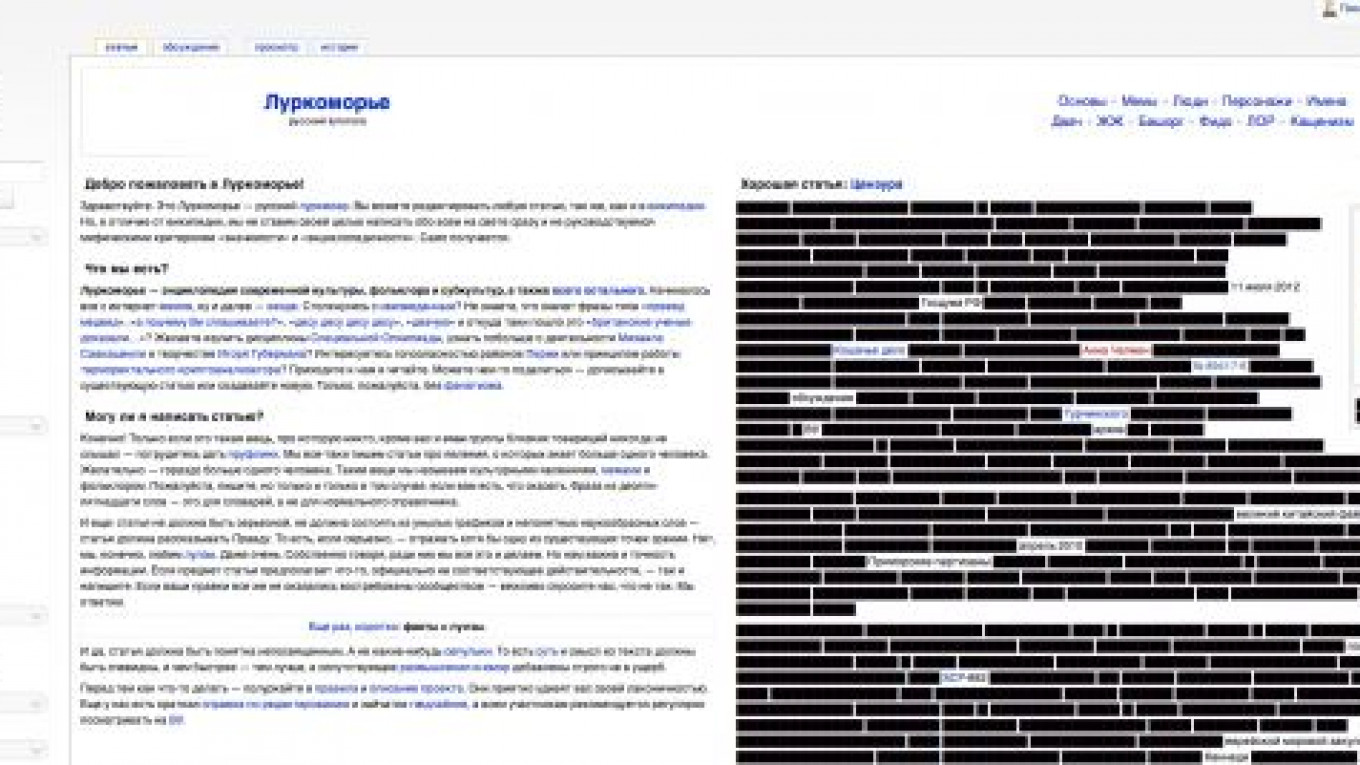Lurkmore, a popular online encyclopedia, has been placed on a blacklist of more than 180 websites banned under a new Internet law, but its popularity has only swelled with the move.
On Monday, the Federal Drug Control Service added Lurkmore’s IP address (85.17.124.180) to a federal registry of banned websites, saying it was concerned that the site was promoting drug use.
"A number of pages contain information that could be characterized as promoting drugs," agency official Nikolai Kartashov told Interfax, adding that the decision had been based on people’s complaints about the website.
Lurkmore, based on an English-language website with the same name, contains information about Russian Internet culture, folklore and subcultures, and its standing as one of the most popular humor sites on the Russian Internet grew with the ban.
The site’s proprietor, Dmitry Khomak, said increased traffic had caused the website to slow down Monday.
Opposition leader Alexei Navalny, a critic of the new law, enjoyed the irony of the site’s surge in popularity. "I want my blog to be banned too — new readers and traffic won’t do me any harm,” Navalny wrote on Twitter.
On Sunday night, Lurkmore’s administrators learned that the site was unavailable in some parts of Russia from users’ Twitter messages. Following user complaints, they transferred the site to a different IP address, but some Internet providers continued to block it as a precaution, Khomak said.
Khomak said the Federal Drug Control Service did not issue a prior warning or provide any instructions, Interfax reported. “In the worst case scenario, we will go to court,” he said.
In a separate interview with Business FM radio, Khomak speculated that an article about marijuana might have been the cause for the closure.
Since the implementation of the Internet law on Nov. 1, the Federal Mass Media Inspection Service has banned more than 180 websites for containing information that can be harmful to children, including child pornography, material encouraging suicide, and information on drug production and distribution. The list of the banned websites has not been made public.
Related articles:
A Message from The Moscow Times:
Dear readers,
We are facing unprecedented challenges. Russia's Prosecutor General's Office has designated The Moscow Times as an "undesirable" organization, criminalizing our work and putting our staff at risk of prosecution. This follows our earlier unjust labeling as a "foreign agent."
These actions are direct attempts to silence independent journalism in Russia. The authorities claim our work "discredits the decisions of the Russian leadership." We see things differently: we strive to provide accurate, unbiased reporting on Russia.
We, the journalists of The Moscow Times, refuse to be silenced. But to continue our work, we need your help.
Your support, no matter how small, makes a world of difference. If you can, please support us monthly starting from just $2. It's quick to set up, and every contribution makes a significant impact.
By supporting The Moscow Times, you're defending open, independent journalism in the face of repression. Thank you for standing with us.
Remind me later.


